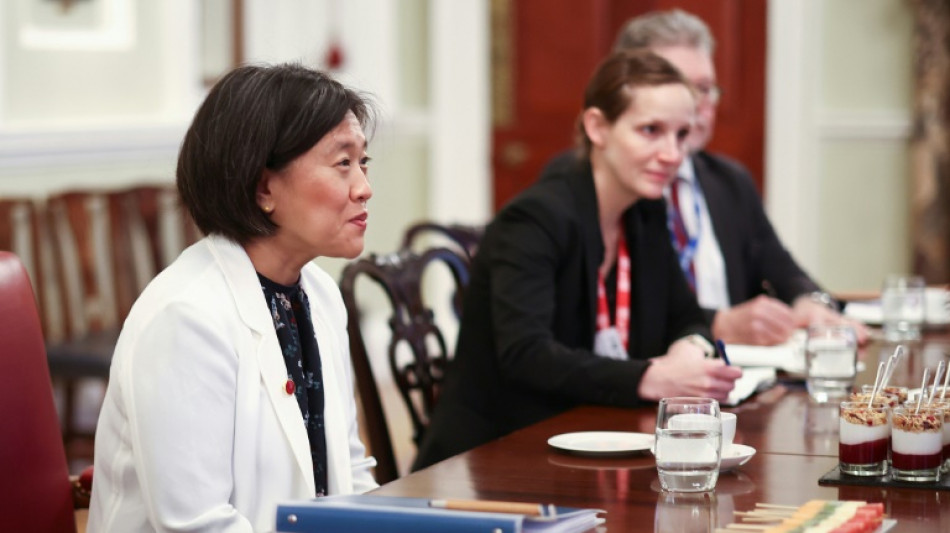

China has expanded statist economic policies over 20 years in WTO: US
China has not adopted the rules of the World Trade Organization even after 20 years' membership, the United States said Wednesday, adding that the world's second-biggest economy had "retained and expanded" its statist approach to the detriment of businesses and workers globally.
"China also has a long history of violating, disregarding and circumventing WTO rules to achieve its industrial policy objectives," said an annual report to Congress by the office of the US Trade Representative (USTR) Ambassador Katherine Tai, laying out the Biden administration's assessment of China's WTO membership.
Based in Geneva, Switzerland, the WTO works to enforce rules governing international trade, including promoting fair competition and open trade.
When it joined in December 2001, Beijing said it would embrace those principles, Tai said.
"China has instead retained and expanded its state-led, non-market approach to the economy and trade," she said.
"It is clear that in pursuing that approach, China's policies and practices challenge the premise of the WTO's rules and cause serious harm to workers and businesses around the world, particularly in industries targeted by China's industrial plans."
The United States has long denounced Chinese practices, such as its subsidies for public companies.
Beijing is also accused of stealing intellectual property and forcibly transferring know-how and technology from foreign companies in exchange for market access.
These were among practices cited by former US president Donald Trump when he launched a trade war against China in 2018 with punitive customs duties.
The USTR noted Wednesday that the United States had also pushed China to comply with the standards in bilateral discussions.
However, the 72-page report pointed to only "isolated" progress and lamented that China's commitments to fundamentally change its approach had not borne fruit.
Its commitments in January 2020, part of phase one of the bilateral treaty concluded with Trump, have not been respected either, it said.
"China has not yet implemented some of the more significant commitments that it made in the Phase One Agreement, such as commitments in the area of agricultural biotechnology," the report details.
It is also far from having met its commitments to purchase American goods and services in 2020 and 2021.
Further, "the reality is that this Agreement did not meaningfully address the more fundamental concerns that the United States has with China's state-led, non-market policies and practices and their harmful impact on the U.S. economy and U.S. workers and businesses," the report added.
Among the sectors affected by China's practices deemed unfair, Washington cites steel, aluminum, solar energy and fishing.
The USTR stressed that the United States was pursuing "a multi-faceted strategic approach" by abandoning neither dialogue nor possible retaliatory measures.
"China is an important trading partner, and every avenue for obtaining real change in its economic and trade regime must be utilized," it said.
Finally, it added that if China "fully" implemented the 2020 agreement, it would lay a more solid foundation for tackling the unresolved issues.
G.Tomaselli--LDdC



